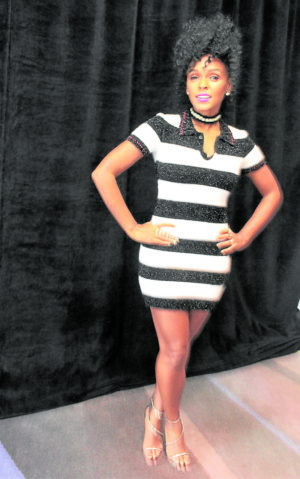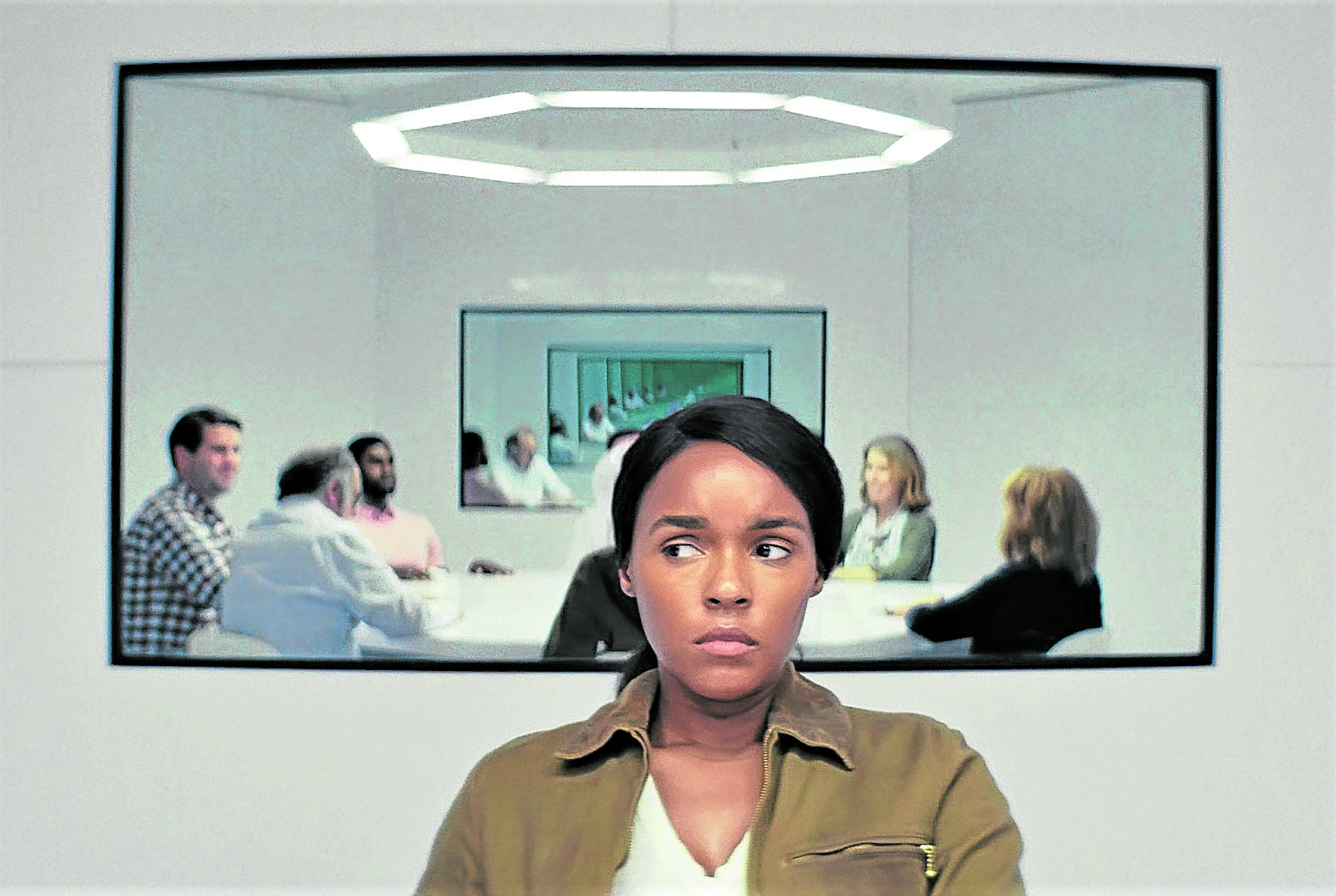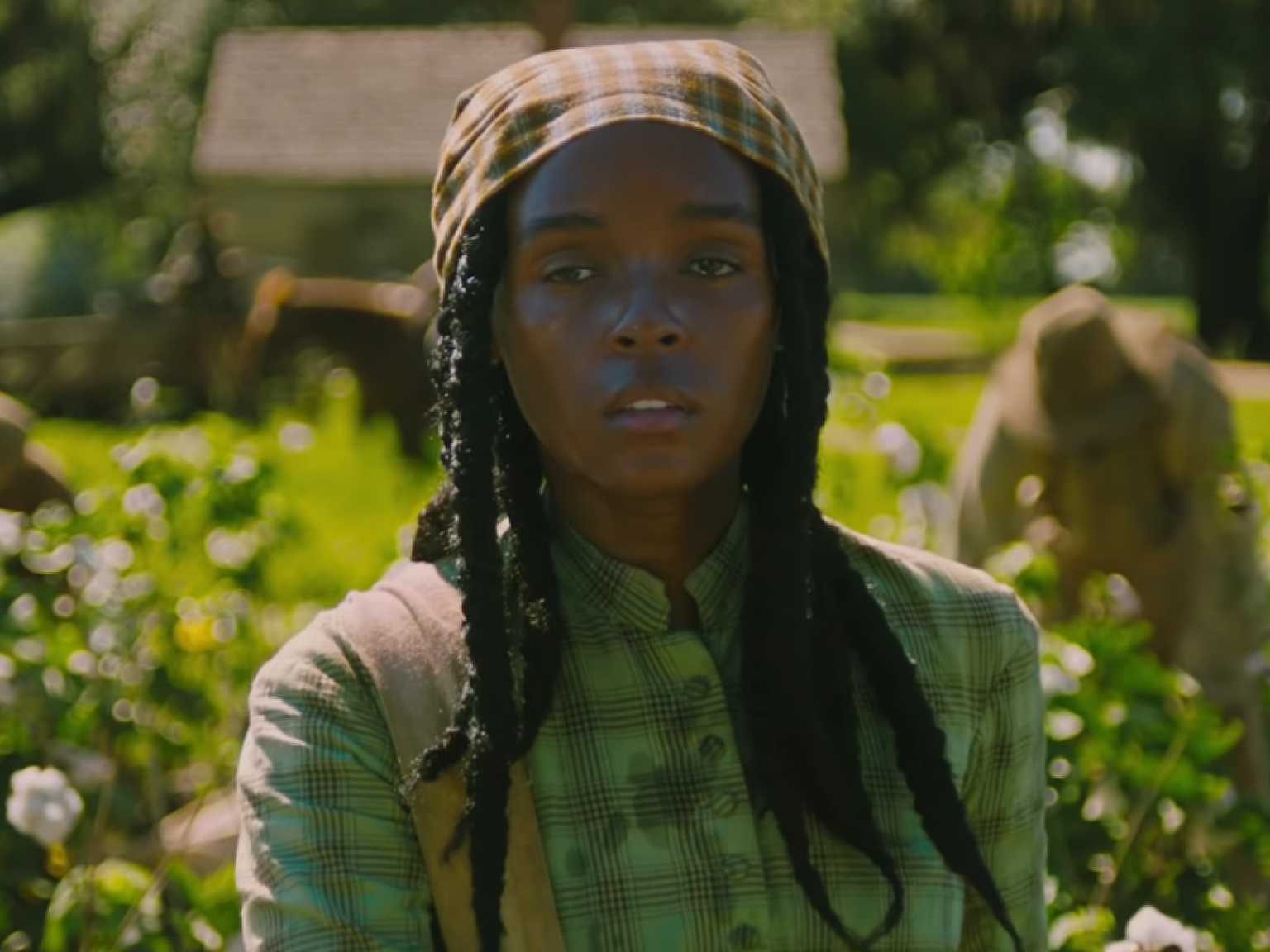Don’t mess with Janelle Monae—she doesn’t call herself Django Jane for a frilly reason
LOS ANGELES—One good thing about interviews via video calls in these pandemic times is that the talents, being in the comfort of their homes, and away from impersonal hotel meeting rooms and their entourage of publicists and agents, seem less guarded, more relaxed and open about their thoughts and feelings.
Singer-actress Janelle Monae, for example, was more engaging than usual to converse with, as she put one foot up on a chair. The fashion icon was still stylish even though she was just lounging at home—she wore a Thom Brown black-and-white striped tie over a white blouse and pajama pants.
And because she didn’t want to show her “really crazy” hair in these lockdown days, Janelle had on a straw hat with chin strings. The cowgirl look coincidentally went with her screen name in this video call: Django Jane.
Laughing, she explained, “I am from Dodge City, Kansas. It is where a lot of the cowboys knew each other. But Django Jane is a character that is a part of my life. I had a song called ‘Django Jane’ on my last album, ‘Dirty Computer.’ Django Jane is partly from Quentin Tarantino’s ‘Django Unchained’ and partly from Janelle. Very much someone who won’t back down (laughs) without a fight when it comes to the people she cares about.”
The eloquent 34-year-old talked about succeeding Julia Roberts in Amazon’s drama series, “Homecoming,” with returnees Hong Chau and Stephan James and new cast additions Chris Cooper and Joan Cusack, and her new film, Lionsgate’s “Antebellum,” a time-traveling horror tale of slavery.
Excerpts from our chat:
Article continues after this advertisementWhere does your fashion sense, usually reflected in black and white, come from? Why do you call what you wear your uniform?
Article continues after this advertisementIt’s rooted in my upbringing. It started with my parents who were essential workers. They were janitors, trashmen. My grandmother worked at the county jail as a cook for 25 years. And my mom was a maid. Even I had to take on a job being a maid. Whenever I put on my uniform, I feel a great sense of pride. I feel like I’m carrying them (family) with me.
And who do you credit for your inner strength?
My mom, grandmother and the women in my family were very good at masking, even when they weren’t doing so well. They had to keep the family together.
Ultimately, one of my jobs is to go through all the emotions. That’s why by being a musician, an artist and playing characters, I get an opportunity to go through some of the things that we all experience.
In these uncertain times, how do you feel about going back to the recording studio?
Every day I wake up and I feel like I’m in some really bad science-fiction film. I do not want to write music about right now in the state we’re in. That is why I’m super thankful for the film (“Antebellum”) that I did and the TV show, “Homecoming.” They give me an opportunity to escape for a little bit.
At around 12 years old, you wrote a musical that was inspired by the 1979 Stevie Wonder album, “Journey Through the Secret Life of Plants.”
I remember I wasn’t a teenager yet. Yes, I did. It was about photosynthesis. My grandmother and everybody were fighting in our community. This plant came down and made them all come together as a community. I’ve been trying to get my mom to send it to me. It’s hard to find it.
What did music stimulate in you at such an early age?
I’m a person who reacts to feelings. I just knew how music made me feel. It was such a gift that I was given through music, that I wanted to give in return.
You are fortunate that your “Homecoming” got finished before the lockdown. In doing press for the show now, how are you finding this experience?
My heart goes out to all the workers who had projects that they were supposed to be doing. I know that financially, it’s causing emotional stress because all of us are used to working and connecting. Not having that community is taking its toll on us.
How does it feel to step into the shoes of Julia Roberts as the lead in this second season?
I feel so thankful that Julia passed the baton to me, in a sense, and having her on as executive producer [makes a world of difference]. I got an opportunity to tell her this in person. Julia came on set.
She’s an icon, a cinema hero of mine, and I’m super thankful to be leading Season 2.
This show brings to mind the role of big corporations and their power of manipulation. We’re seeing this today, especially in the search for a coronavirus treatment. Can you talk about how art really imitates life?
I’m asking myself the same questions. This show is so on time and I wish it wasn’t. But it’s surely an example of what does happen when capitalism is at the forefront of the health and well-being of our citizens.
That this show has a lot to say about how we treat our vets, mental health, and how we all must come together to fight the giant that is the abusive power being led by corporate America, those who are hiding the cures that we have and are trying to profit out of our pain, that must stop.
Now that you’re playing an amnesiac woman in this series, do you have a newfound appreciation of memory?
The quality of our life, or lack of it, is determined by the memories we make—the good, bad, exciting, highs and lows. To be able to remember is a blessing.
How are you keeping your sanity and staying positive in these pandemic times?
I allow myself to feel everything. If I want to cry, I’m going to do it. If I want to worry, I am going to do it. But I’m not going to allow myself to do it for days because, combined with the isolation and the social distancing, that is when you can go on a downward spiral.
When was the last time you didn’t back down?
Probably when I was trying to take out the trash and it spilled over and I had to clean it up (laughs). And doing the dishes.
Your film “Antebellum” is also a work of fiction but, like “Homecoming,” it has parallels to what is happening today. Was it cathartic for you to go through seeing man’s injustice toward other men?
It was therapeutic, difficult, traumatic. I’m a storyteller and my job is to tell a story that I feel needs to be highlighted.
Was there a psychological toll in acting the role of a slave?
I consider myself a free ass mother**ker. There’s no way that I could imagine what my ancestors went through. [But] my job was to go through it in order to come out on the other side.
Can you talk about being a role model in the LGBTQ community?
I’m proud to be a member of the LGBTQ community. I have never felt so much love. The love is beautiful to receive and I hope that through my work, the communities continue to feel seen or heard.
What’s your most fervent wish in this coronavirus crisis era?
I hope that those who are more privileged than the majority of our citizens come together and first acknowledge that we aren’t all in the same boat.
I want us to figure out ways to fight capitalism and return back to when the health and well-being of our neighbors were at the forefront. Also acknowledge the heroism of essential workers, who are risking their health every single day.
Email: [email protected]
Follow him at twitter.com/nepalesruben


